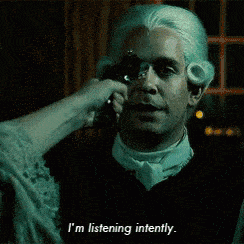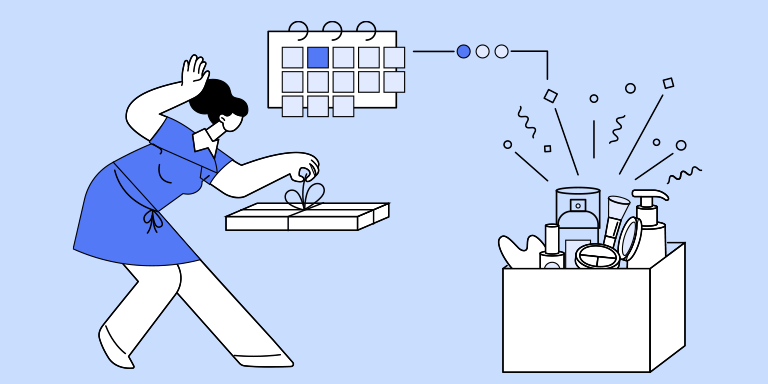Building a great network is essential to the success of any entrepreneur. It’s crucial when looking to provide a service to an eventual pool of loyal users, but also for those seeking to woo investors to their budding companies.
The importance of networking for entrepreneurs is evidenced by the never-ending flood of events that bombard us all constantly. Every weekend, happy hour, breakfast, and lunch it seems is packed with invitations and opportunities to hang out at popular startup hubs and mixers. Gripping and grinning, hearing elevator pitch after elevator pitch, vacation plan after vacation plan.
Don’t get me wrong, depending on your level of introversion, they can be a lot of fun, and you can meet some amazing people and build lifelong connections. Then again, if you’re not careful, you could also spend a lifetime chasing every single gathering of entrepreneurs, wasting valuable time that you could and should be spending, you know, actually working on your startup!
While it’s important that every entrepreneur strives to grow their network, I’m telling you here and now, you simply do not need to attend 99% of these networking events.
In fact, many of the most respected entrepreneurs in the world built their businesses from the ground up without jumping at every networking event they came across in the media or heard about from a friend. They chose instead to focus on building their businesses and gaining their customers’ trust, before eventually earning the respect of those they want to meet and establish relationships with.
One example is Mark Zuckerberg. Zuck chose to focus on growing his social network independently into something of value, teaming up with just a couple of friends from Harvard to build it up in the early days. Today, many entrepreneurs, engineers, analysts, politicians, and more, flock to any event he may attend. They come to him.
Another example of two entrepreneurs who focused first on ensuring their startup had real market value before attempting to build relationships with other entrepreneurs were the WhatsApp co-founders, Brian Acton and Jan Koum. While still working at Yahoo, Brian, Jan, and some other Yahoo employees put up $250,000 to launch WhatsApp, now the world’s most used instant messaging app.
Their success with WhatsApp’s launch and growth drew the attention of the startup community, and an unrelenting Mark Zuckerberg himself sent an email to Jan to schedule a coffee meeting. The two became friends, and eventually partners, with Facebook acquiring WhatsApp for $19 billion and integrating its founding team with their company.
These are obviously some extreme examples, and very few entrepreneurs can expect the kind of entrepreneurial journey as the guys behind Facebook and WhatsApp. But it’s just to demonstrate that you don’t need to put the cart before the horse when it comes to networking.
A network is important, but instead of jumping around to every event before you have any traction with your business, I’d advise you to first build up your startup and let networking organically follow. Here’s what I mean.
What Stage Should You Then Start Attending Events?
buy stendra online buy stendra online no prescription
Growing a startup first, until it adds value to a person or two’s life is a very important element to building successful business relationships. No matter how hard you work to befriend a successful entrepreneur in the startup community, if you have nothing to make them value a new-found relationship with you, there’s little chance they’d take you very seriously.
Remember, even though most in the startup world are pretty chummy with each other, this is business! Rather than appealing to their emotions in a bid to sprout a friendship, appeal instead to their self-interest. If they have nothing to gain from you, then they probably will have nothing to do with you.
Furthermore, people like others who are like them. Even better, people like others like them who make them feel good about themselves via some exchange of value. When you try to impress with nothing to back it up, the relationship you thought you were building will fizzle away. This sucks, and if it happens to you it can cause depression and make you lose whatever beliefs you may have had in yourself and/or your startup.
A few more examples of this in action:
Entrepreneurial legend Steve Jobs never spent his days trying to attend a bunch of networking events. He and Steve Wozniak spent a ton of time building and improving their product to make sure they had the best product offerings, while Jobs spent only part of the time seeking investors.
When entrepreneur and investor Mike Markkula eventually came along, he didn’t invest or help them secure funding because he thought they were great at making friends. He got acquainted with them because he believed in what they were doing from their progress so far, and the team they had put together.
Even Drew Houston of Dropbox had built and gained a little bit of traction before his team got accepted into YCombinator.
Another example from Nigeria is a man named Nnamdi Ezeigbo. Nnamdi set out to start up a computer and mobile phone store, which over 10 years has grown to be known as the largest mobile phone retailer in the country. All this occurred without him running from one gathering of entrepreneurs to another, or seeking favors. Today, he’s a force to reckoned with, and everyone in Nigeria knows his brand as one of the most reputable in the country.
But Isn’t Your Network Your Net Worth?
Indeed it is, and that’s why you shouldn’t entirely rule out networking. But it doesn’t come cheap. You can’t just flood your surroundings with business connections and expect to soak up success from the best people by osmosis.
The people we surround ourselves with are too important for us to be hasty with our time and energy spent networking. They can determine a lot in our future, because we directly or indirectly influence our peers’ behaviors. This associative factor makes it important for you to ensure you’re with those who can bring out the best in you.
Relating this to business networking, the people in your circle are critical to your ultimate success as an entrepreneur. This means you need to choose your events wisely.
buy viagra pack online buy viagra pack online no prescription
What Of A Person Who Only Attends A Few Valuable Networking Events?
All this means you have to be selective of what networking events you attend. To measure the value of an event or a meet-up, try to gauge it in terms of its potential for both customer acquisition and overall business growth.
You also want to target networking events where you think you’ll have a chance for real conversations. Too many of these events involve quick chats, exchange of details about each other’s’ businesses, and move on.
While it’s true that there’s an exchange of value to be had, don’t mistake that to mean that you should be establishing phony relationships. You want to have real conversations where you get across your genuine interest in who they are as a person, and how reading about or hearing their story has inspired your growth. With this, they’ll come to trust you and more likely introduce you to a larger part of their network, because you’ve made both a business and a personal connection.
If you attend a few events, are they the right ones? If they are, what’s your approach to building both customer and business relationships?
What Networking Events Are Then Best For You To Attend?
1). Attend Activity Based Networking Events:
Activity-based networking events involve you directly in the entire process. By carrying out tasks with co-entrepreneurs and potential clients, it becomes easier for you all to get along after the workshop is over. Participating in an activity with someone you’ve been wanting to meet means a short-lived partnership that can end up laying the groundwork for future network-building.
2). Attend Industry-Specific Networking Events:
What business does a computer scientist have in a global energy networking event? If it’s to meet prospects that may invest in their tech-related startup, they may have already wasted a lot of time. Anyone there is probably only interested in anything energy related.
Attending a networking event outside of your own direct industry should be done if your tech solution could either directly solve a problem in that field, or if you were specifically invited. Any other reason is largely a waste of time.
3). Attend Invitation-Based Networking Events:
Invite-only events usually have top quality guests present. Knowing that an event is packed only with people strictly invited makes it a lot easier for people to build relationships with others they meet. If a person you’d love to meet is attending, and you know someone who could hook you up with an invitation, then hustling the ticket is a great bet for you.
How Then Do You Make The Most Out Of A Networking Event?
1). Ensure You Have A Complimentary Card:
It may sound a little old-fashioned, but your card is what many new prospects or acquaintances will reach for to get your contact details a few days later. It also legitimizes you. Never go to a networking event worth going to without one.
2). Research Who You’d Want To Meet At The Event:
Before you attend the event, first do thorough research on the speakers and likely entrepreneurs to be in attendance. Prioritize who you want to get to know. Doing this will help you come up with a plan to make the most out of the event.
3). Introduce Yourself:
Sounds like a no-brainer, but this is best way to start the conversation. You don’t just go barging in on them and start talking about an investment or anything business related. And don’t make your introduction sound like an elevator pitch. Be polite and friendly, let them know who they’re talking to.
4). Discuss What You Have In Common:
After a successful introduction, talk about something they’ve done that has amazed you when you learned or read about it. Doing this will make the person more open to you, knowing one of their products or services has had an impact on someone.
5). Ask and Listen More Than You Tell:
Instead of just imposing your ideas and thoughts in the whole conversation, spend more time asking intelligent questions and listening to the replies you get. When you only want your opinions to be listened to, you may be perceived as a rude person, and the conversation you’ve tried to build may be cut shorter than you anticipated.
6). Make Them Feel Good About Themselves:
People like talking to those who make them feel good about themselves. By letting them know the good they’re doing and how their work is changing lives in various places, they’ll feel more inclined to continue the conversation.
7). Don’t Be Pushy:
Don’t try to make a hard sell, no matter what. Just as most people don’t like ads popping up in their faces all the time, the last thing they want is someone who’s about to take a great moment and turn it into another frustrating sales pitch. Rather than a hard sell, you might instead try to offer them something, perhaps a free service or even just an experience.
8). Focus on The Right People:
The goal of attending any networking event is to build quality relationships. This largely involves you approaching and talking to people who would add value to you and your business. Knowing who to engage in a conversation largely requires a preset plan before you arrive.
9). Follow Up Three Days Later:
Three days after meeting a new prospect, associate, or investor, give them a call and re-introduce yourself. This will make the person remember who you are. You could then ask the person for a meet-up sometime, maybe over coffee, so you two can then talk about what your businesses do and how you can benefit from each other. It is important to stick to the three-day follow up rule, as any time longer than that may diminish the relationship already built at the event.
To Sum It Up
Attending every networking event ultimately robs you of the time you could have spent building your startup and understanding your customers. It makes you appear sloppy and unreliable to many potential investors, and even worse, you could end up losing a bulk of your customers, because of time wasted chasing fool’s gold.
Rather than spend time attending every networking event, choose instead, those where you have the highest chances of meeting prospects, and be your best while you’re in attendance.
What about you? With all the networking opportunities out there, how do you decide what to prioritize? How do make sure to get the most out of them?























